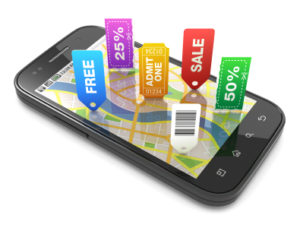On May 25, 2018, NPR’s All Things Considered featured a segment on “Digital Ambulance Chasers? Law Firms Send Ads to Patients’ Phones Inside ERs.” Here’s how NPR described the practice:
Patients sitting in emergency rooms, at chiropractors’ offices and at pain clinics in the Philadelphia area may start noticing on their phones the kind of messages typically seen along highway billboards and public transit: personal injury law firms looking for business by casting mobile online ads at patients.
The potentially creepy part? They’re only getting fed the ad because somebody knows they are in an emergency room.

What limitations do ABA and Louisiana professional conduct standards place on such geofencing practices by lawyers?1
It depends on how such a geotargetted “message” is characterized. If the “message” is characterized as a targeted, “unsolicited written communication” to a prospective client whom the lawyer knows to need legal services in a particular matter, then the lawyer’s communication must prominently display the disclaimer “ADVERTISEMENT.” See ABA Model Rule of Prof’l Cond. R. 7.3(c); La. Rules of Prof’l Cond. R. 7.4(b)(2). Furthermore, in Louisiana, a lawyer may not send an “unsolicited” written communication to a prospective client within 30 days of an accident or when the prospective client is in such a “physical, emotional, or mental state” that the person’s ability to “exercise reasonable judgment” is impaired. See La. Rules of Prof’l Cond. R. 7.4(b)(1).
If, however, the “message” is characterized as a broadcast advertisment, then these limitations do not apply.
Which characterization is correct? In my view, these “messages” are more akin to broadcast ads than to targetted solicitations.
Why? Advertisers typically deliver geofenced advertisements to Google searchers who are likely to need a lawyer given the content of their search queries and their location. In so doing, however, advertisers do not deliver ads to those known to need legal services. Furthermore, such advertisements do not involve “coercion, duress, fraud, overreaching, harassment, intimidation, or undue influence”—they are virtually indistinguishable from thousands of similar ads that routinely pop up in response to Google searches. Finally, Google serves up such advertisements in response to queries seeking a “lawyer” or “attorney.” Thus, the targeted advertisements are actually ones that have been sought by prospective clients—not ones that were entirely unsolicited.
On this view, a geotargetted Internet ad differs little from a lawyer billboard placed across the street from a hospital parking lot. Such a geotargetted billboard advertisement would be a lower-tech version of a location-driven Internet ad and would not be regulated as a targetted communication.2 Distasteful? Yes. Unethical? No.
- Legal marketing services have asked lawyers to “imagine placing ads to potential personal injury clients as they enter and after leave a hospital, auto body shop or chiropractor; for criminal lawyers, how about a police station, bail bonds or court house.” See Real Legal Marketing, GeoFencing for Lawyers. Google allows advertisers to “target a radius around a location” and thereafter serves up advertisements in response to certain Google searches conducted near that location. ↵
- Similarly, if a lawyer were to place advertising leaflets on the windshields of all the cars in a hospital parking lot, the lawyer would not have to disclaim them as “ADVERTISEMENTS.” But if the lawyer were to mail or hand-deliver one of those leaflets to a particular accident victim, then the lawyer would have to use the disclaimer, among other requirements. ↵
